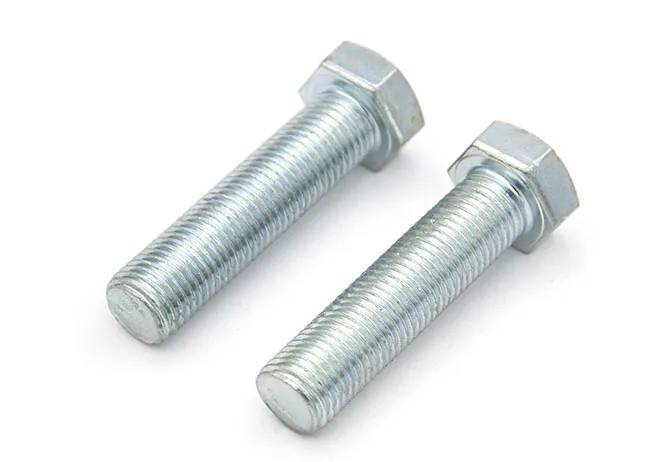Exploring the Future of Manufacturing with 50 Innovative Bolt Factories
Oct . 21, 2024 15:14 Back to list
Exploring the Future of Manufacturing with 50 Innovative Bolt Factories
The Future of Manufacturing Exploring the 2050 Factories for Bolt Production
As we move toward a rapidly evolving technological landscape, the manufacturing industry is undergoing a significant transformation. By 2050, factories dedicated to producing bolts and other fasteners will likely look vastly different than they do today. This transformation will be driven by advancements in automation, sustainability, and digital integration, making the production process more efficient, environmentally friendly, and responsive to market demands.
Automation and Robotics
One of the most significant trends shaping the factories of 2050 is the integration of advanced automation and robotics. In the coming decades, we can expect factories to be filled with sophisticated machines capable of performing intricate tasks with minimal human intervention. Automated systems will enhance productivity by streamlining the assembly line process, reducing errors, and allowing for 24/7 production capabilities.
Robotic arms, equipped with artificial intelligence, will be able to adapt to different bolt designs and specifications, ensuring a high level of precision. This change will not only improve product quality but also reduce waste and material usage, promoting a leaner manufacturing process.
Sustainable Practices
Environmental concerns are driving the need for sustainable manufacturing practices more than ever. By 2050, bolt factories will likely prioritize eco-friendly materials and processes to minimize their carbon footprint. The industry will increasingly focus on using recycled materials, reducing energy consumption, and implementing waste management systems that ensure minimal environmental impact.
For instance, factories might utilize renewable energy sources, such as solar or wind power, to operate machinery, further reducing reliance on fossil fuels. Innovations in circular manufacturing—where products are designed with their entire lifecycle in mind—will also become more prevalent. This approach not only conserves resources but also meets growing consumer demand for sustainable products.
Smart Factories and Digital Integration
bolts 50 50 factories

The concept of smart factories will play a crucial role in the bolt manufacturing industry by 2050. The Internet of Things (IoT) will connect machines, sensors, and devices, enabling real-time data collection and analysis. This interconnectedness will allow manufacturers to monitor production processes, identify inefficiencies, and make data-driven decisions to optimize operations.
Predictive maintenance, powered by AI and machine learning algorithms, will anticipate equipment failures before they occur, minimizing downtime and increasing productivity. Additionally, factories will leverage advanced analytics to forecast demand accurately, ensuring that production levels align with market needs, thereby reducing excess inventory and associated costs.
Workforce Transformation
While automation will significantly reduce the need for manual labor in some areas of bolt production, it will also create new job opportunities in technology, maintenance, and process management. The workforce of 2050 will require a new set of skills, with a greater emphasis on technical knowledge and problem-solving abilities.
Training programs and educational initiatives will be instrumental in preparing the workforce for these changes. Companies will likely collaborate with educational institutions to develop curricula that focus on emerging technologies, ensuring that employees are equipped to handle the challenges of a highly automated and digitized environment.
Conclusion
The bolt manufacturing factories of 2050 will be at the forefront of innovation, driven by automation, sustainability, and digital integration. As the industry undergoes this transformation, it will not only enhance productivity and product quality but also contribute to a more sustainable future.
Embracing these changes will require a commitment to continuous improvement and adaptability, ensuring that companies remain competitive in an ever-evolving market. As we look ahead, the potential for growth and development in the bolt manufacturing sector is tremendous, paving the way for a more efficient, responsible, and innovative industry in the decades to come.
Latest news
-
High-Quality Panel Stud Bolt Reliable Panel Stud Bolt Factory & Suppliers
NewsJul.08,2025
-
High-Precision Fine Thread Locknuts Manufacturer & Supplier Custom Solutions
NewsJul.08,2025
-
PH Imperial Stud Bolt – High Strength Fasteners from Leading Supplier & Factory
NewsJul.07,2025
-
High-Quality Allen Wrench Bolts Leading Factory, Company & Suppliers
NewsJul.07,2025
-
Wholesale Ball Stud Bolt - High Quality Supplier & Factory Price Reliable Wholesale Ball Stud Bolt Company
NewsJul.06,2025
-
High-Strength Alloy Bolts Manufacturer & Supplier Quality Alloy Fasteners Factory
NewsJul.06,2025
